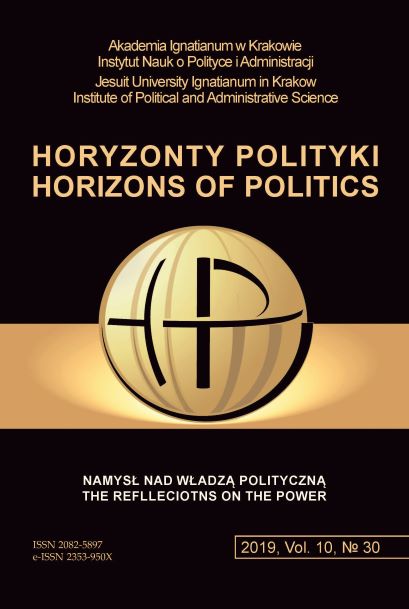M.A. Krąpca filozoficzna koncepcja prawa
M.A. Krąpiec’s Philosophical Conception of Law
Author(s): Tomasz ĆwiertniakSubject(s): Anthropology, Philosophy of Law
Published by: Uniwersytet Ignatianum w Krakowie
Keywords: M.A. Krąpiec; man; society; state; law;
Summary/Abstract: RESEARCH OBJECTIVE: Presentation of the philosophical foundations of the understanding of law based on M.A. Krąpiec’s theory of the human person. THE RESEARCH PROBLEM AND METHODS: Contemporarily there is a noticeable deficit of reflections about the philosophical grounds of law. To overcome this deficit, it is necessary to rely the research on the results of basic philosophical disciplines: metaphysics and philosophical anthropology. In this article author presents, using systemic analysis and synthesis (with elements of literary research), philosophical theory of law formulated by M.A. Krąpiec, a continuator of the philosophical tradition of Aristotle and Thomas Aquinas. THE PROCESS OF ARGUMENTATION: The philosophical concept of the common good understood personalistically, i.e. as the common purpose of all human persons, is key to the conception presented in the article. This common good consists in the actualization of man’s personal potential, i.e. the intellectual, volitional, and creative development of every human being. According to this view, the assignment of individual human persons to the common good constitutes the basis for understanding law as an interpersonal relation characterized by the obligation to act (or not to act) on account of this assignment. RESEARCH RESULTS: Natural law, with its principal command of “do good, avoid evil,” is given as the highest rule of human action and the grounds for the “bindingness” (validity) of positive law. A command of positive law that is contradictory to natural law (and thus contradictory to the good of human persons) ceases to be binding. CONCLUSIONS, RECOMMENDATIONS, AND INNOVATIONS: The philosophical conception of M.A. Krąpiec presented in this article emphasizes the connection between the legal order and the good of the human person. It simultaneously indicates the foundations and limits of the “bindingness” (validity) of positive law. From this perspective, Krąpiec’s conception may help overcome the aforementioned deficit in the philosophical grounds for the “bindingness” of law and protect legislation from arbitrariness.
Journal: Horyzonty Polityki
- Issue Year: 10/2019
- Issue No: 30
- Page Range: 127-145
- Page Count: 19
- Language: Polish

